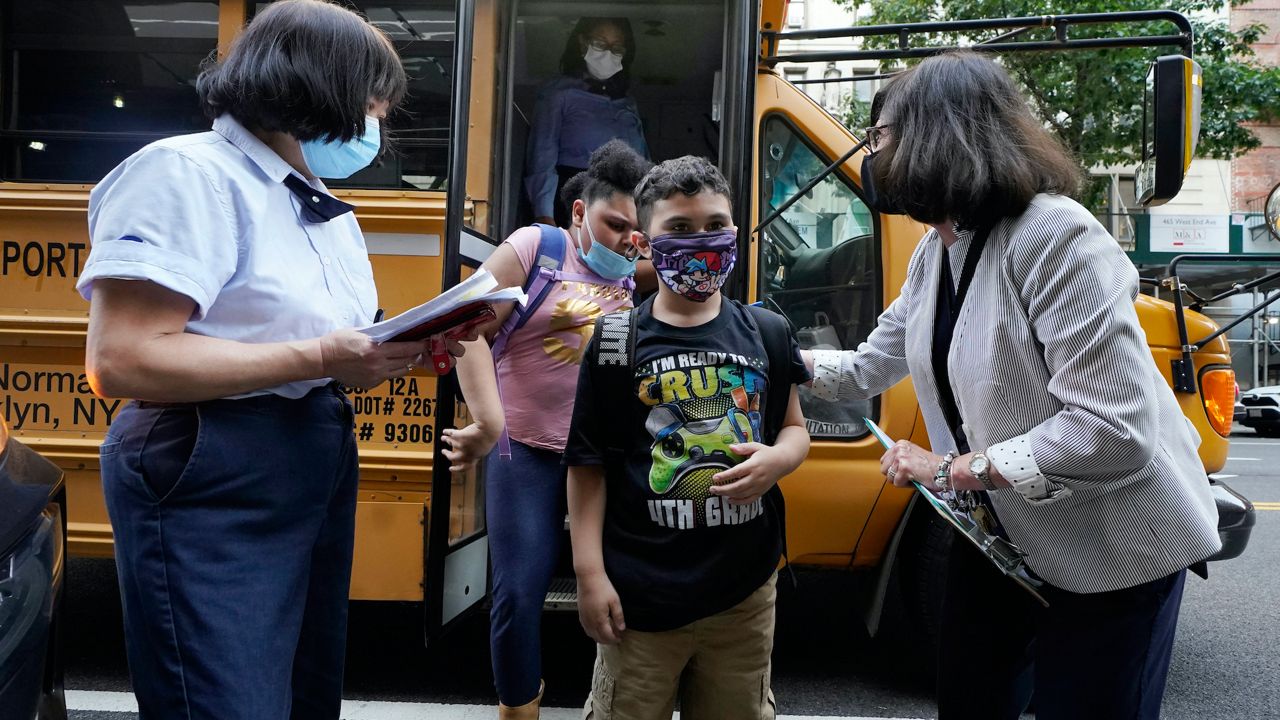A New York court granted a full stay on the state's mask requirement as a legal fight over the mandate continues.
A lower court ruling last week struck down the mandate before a temporary stay was issued on it about 24 hours later.
Gov. Kathy Hochul, who reinstated the face covering order back in December, recently extended it to expire on Feb. 10.
"My primary responsibility as Governor is to keep New Yorkers safe. Mask regulations keep our schools and businesses safe and open, protect vulnerable New Yorkers, and are critical tools as we work to get through this winter surge," Hochul said in a statement Monday evening. "Thanks to our efforts, including mask regulations, cases are declining and we are seeing major progress in the fight against COVID-19. I thank the Attorney General and her team for their defense of these common sense measures, and I am confident we will continue to prevail. We are committed to doing everything in our power to keep New Yorkers safe."
More broadly, the development comes in the legal challenge to the indoor mask mandate has re-ignited the political debate over how officials have power over the COVID-19 pandemic.
The outcome of the debate could ultimately determine the course of the pandemic in New York as the public health crisis grinds on to its third year.
Republican candidate for governor Lee Zeldin, at a rally opposing mask mandates in schools, blasted the mandate, arguing state officials never had the power in the first place to put an indoor mask rule in place.
"I believe that the statewide mask mandate is unconstitutional, that it is a violation of state laws," Zeldin said.
Gov. Kathy Hochul re-extended the mandate until Feb. 10 for businesses and other indoor spaces, while schools have had it extended indefinitely. State officials are confident the mask mandate will be upheld on appeal.
But as a challenge to the mandate is being played out in courts, Zeldin said New York officials' efforts to keep the mandate in place has led to confusion for schools.
"Some school districts, they get rid of the mask mandate, it became optional," Zeldin said. "Others, they kept it on. Some changed multiple times. They were fearful they couldn't get rid of the mandate because the state was going to take away their funding."
But legal experts like Thomas Merrill, a former general counsel at the New York City Department of Health and now at the New York State Bar Association, say challenges to pandemic mitigation efforts have been upheld.
"There are limits on what a government can do, but there's going to be great deference to a health department in an area of disease," said Merrill, the association's vice chair of the public health committee.
And having the health agencies hold this power is key to be nimble enough to respond to the pandemic and other crises, he said.
"You got to be able to act quickly," Merrill said. "And you've got to be able to trust your health department, you've got to trust your commission to make the decisions."
Public health experts said mask wearing can be effective in limiting the spread of the virus. But is it working in schools? UAlbany school of public health Professor Tomoko Udo says the data is not conclusive enough.
"So many factors come into it," Udo said. "Is the person or kid vaccinated? Is the person asymptomatic? It's very complex situation to say if you wear mask in this setting this actual percentage we're going to see get it."
With controversies swirling over mask wearing, especially in schools, it's easy to forget the pandemic still remains a danger to many.
"I think fatigue is one thing," she said. "But part of it is becoming numb with that number — a thousand people dying. It looked like a lot, but consistently happening, we kind of become numb it's a normal thing — and it's not."



